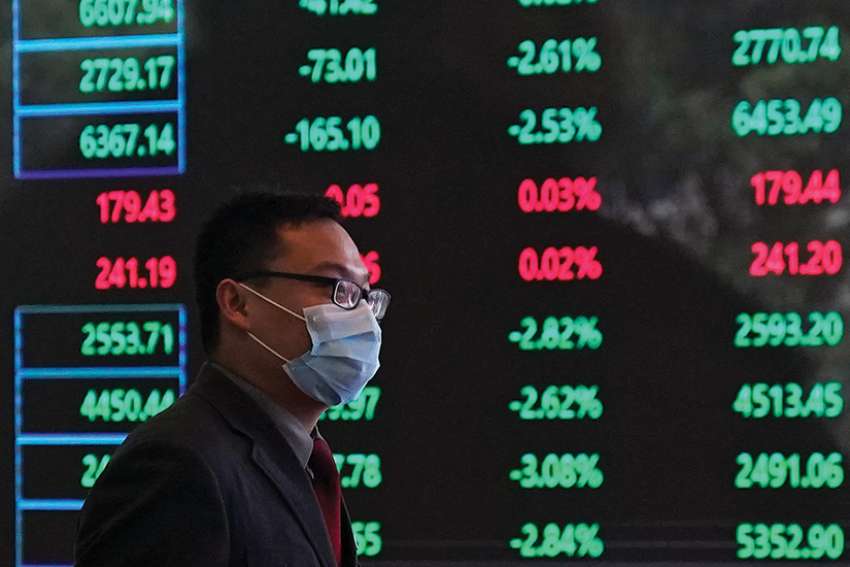The pandemic has transformed our planet in arguably the most profound way in a century. There are few events that have had such a comprehensive impact on all individuals, communities and countries as the one we are living through right now. It has affected how we interact as families, as employees and even as citizens of a global community. One area that changes under extreme circumstances is our everyday language — our social codes — and it is remarkable just how many new words and phrases have entered our lexicon because of the virus.
A few months ago I stumbled over a headline that referred to a new skin condition: maskne. It took a moment for me to realize it was a play on acne, and marvelled to see companies already exploiting the skin irritation that masks were causing to market new ointments.
I had no such confusion upon hearing everyday citizens referring to PPE with no explanation needed. Colleagues spoke unselfconsciously of our need to “flatten the curve” and the importance of “social distancing.” Our tech team at the university explained the strategies we were adopting to guard against “Zoombombing,” and everyone understood the context.
In our virtual world a whole new phraseology was also born. The phrase of the year is certainly “You’re on mute!” and the question, “Do you have a question or is that a legacy hand?” has been asked dozens, if not hundreds, of times in the hours I have spent in virtual meetings.
Another phrase that feels somehow symbolic is “Waiting in the Lobby.” The first few times that I read that a colleague was waiting in the lobby to be admitted seemed odd. Now my hand moves to the “Admit” button without a second thought.
Perhaps my favourite word in all of this is “Covidiot.” Somehow that pun captures the sense of frustration we all feel when another individual refuses to follow the rules that we believe in and displays what we understand to be spectacularly poor judgement.
What crises amplify, of course, is how divided we can all be on what is right or otherwise. The conflict between maskers and anti-maskers is a case in point, and I was surprised to discover similar conflicts arose during the 1918 flu pandemic. In Australia over a hundred years ago “mask slackers” gathered to protest against masked “freedom takers” at a local cinema.
It is of course true that all crises generate their own language and naturalize technical and scientific speech in ways that would otherwise seem impossible. Can any one of us honestly say that RAdio Detection And Ranging would ever roll off the tongue? And yet, thanks to the Second World War, RADAR became common parlance.
The First World War similarly popularized words and phrases for us, both light and gruesome. The word blimp, to refer to airships, is familiar. Less well known is the phrase “basket case,” which has a lighter sense now, but originally referred to soldiers so brutally injured — having lost all four limbs, for example — that they had to be removed from the battlefield in a large wheelbarrow or basket.
Over time, the meanings of words can change. It might surprise some to know that “bully” was once a term of endearment and could refer to a friend or protector. “Terrific” referred to a bad thing, playing on its root: terror. It is hard, today, to think of words such as “awful” or “tremendous” as terms describing goodness and negativity respectively. And yet this was exactly their original meaning. Cultures change to reflect their times and language helps to articulate the process.
And so, as I always do, I look back to how Jesus changed our lexicon, arriving as a much-needed vaccine to help inoculate against a world plagued by cruelty, greed and division. When we ask someone to follow the Golden Rule or to turn the other cheek, we know immediately that these lessons come from Christ.
Few Christians would hear the phrase “our daily bread” and not immediately think of the Lord’s Prayer. Were someone to suggest that we not throw the first stone, most would remember Jesus’ teachings as recounted in the Gospel of John.
Indeed, it is easy to forget the origins of influential moments and individuals, and as such to have words lose their meaning. There are hundreds of articles and books written about how the Bible, and Jesus’ words, has been misused to justify everything from slavery to child detention.
Context is everything and it is important to return to the source — to study Jesus’ words and understand that a loving God calls on us to be kind, compassionate and accountable. This is more important than ever when we are suffering from “grief overload” and “tragedy fatigue.” At a time such as this, no one should be left waiting in the lobby.
(Turcotte is president of St. Mary’s University in Calgary.)


